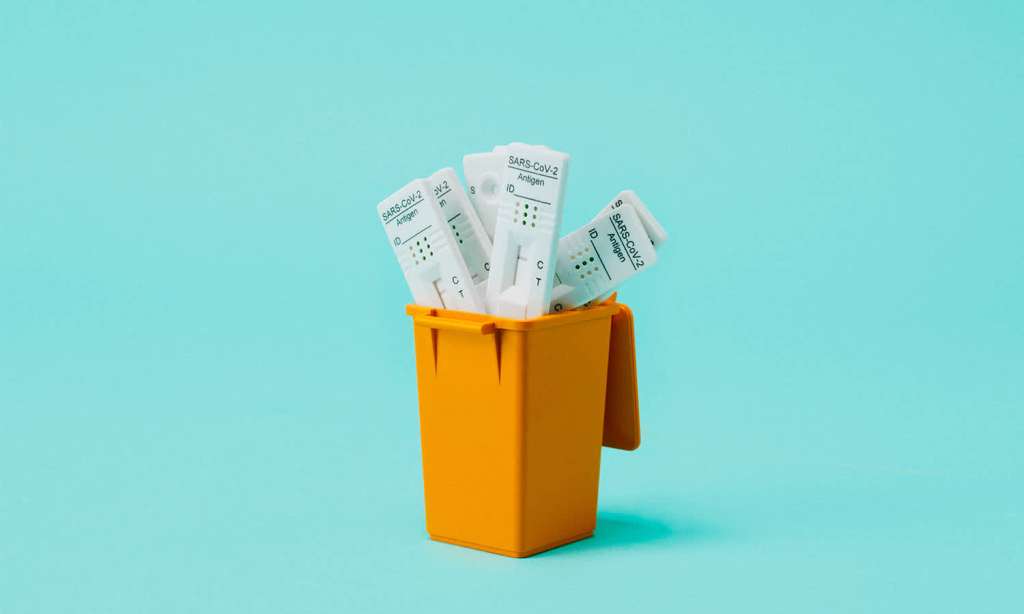Rapid Antigen Tests have quickly gone from obscure medical device to household item in a matter of weeks. Now that case numbers in certain states appear to be on the decline, pushing demand for the tests down from their fever pitch highs at the start of the year, more of us are actually able to get our hands on them.
If you’ve done a RAT or three, which most of the country has, you’re likely to already have a little pile of the plastic cassettes lying around — if you’ve not already binned them.
While the cassettes — as they’re known — are made of plastic, along with most of the other components that come with them, they’re not actually recyclable.
This is due to the fact that the devices, once used, contain biological matter which makes them unfit for recycling purposes. In addition, the fact that this is human biological matter, especially that which could carry the COVID-19 virus, makes the tests a health risk to recycling workers.
So, instead of separating out the tests into their various components and disposing of them as you might think appropriate, here’s what you should be doing with your RATs once you’re finished with them.
Recycling RATs
The only parts of the Rapid Antigen Test kit which can be recycled are those that don’t come into contact with biological waste. That means, essentially, everything that is not part of the test.
This includes cardboard packaging, paper instructional materials, and any other pieces that might come with the kits that you don’t use as part of the test. Those little cardboard holders would come under this.
These pieces can all be placed in the recycling as normal. Everything else is a different story.
How to Dispose of RATs
Unfortunately, for the most part, Rapid Antigen Tests can’t be recycled. With a usage time of just 15 minutes, apart from that mentioned above, most of the test has to go into landfill.
This is because, as above, the tests are contaminated. Despite being made of recyclable material, they have to go into regular household waste.
This means the swab, the fluid tubes, and the cassette. They should be bagged and put in the bin along with other non-recyclable items.
Currently, no country in the world recycles them, so all of the RATs being used in Australia and worldwide are going to end up meeting the same fate: either incinerated or in landfill. It’s a sad fact, but not one that should put you off using the tests to check if you have COVID.
There’s also the question of those little UV torches you get with some of the test kits. These can be disposed of with normal electrical waste. Local councils often arrange for electrical waste drop off and collection, so it’s best to check with your local state or council authorities for exactly when and where you can get rid of them.
They’re also kind of fun though, so, if you think you’ll use them, maybe save them for when you want to pretend you’re in an episode of CSI.
Read more stories from The Latch and subscribe to our email newsletter.







